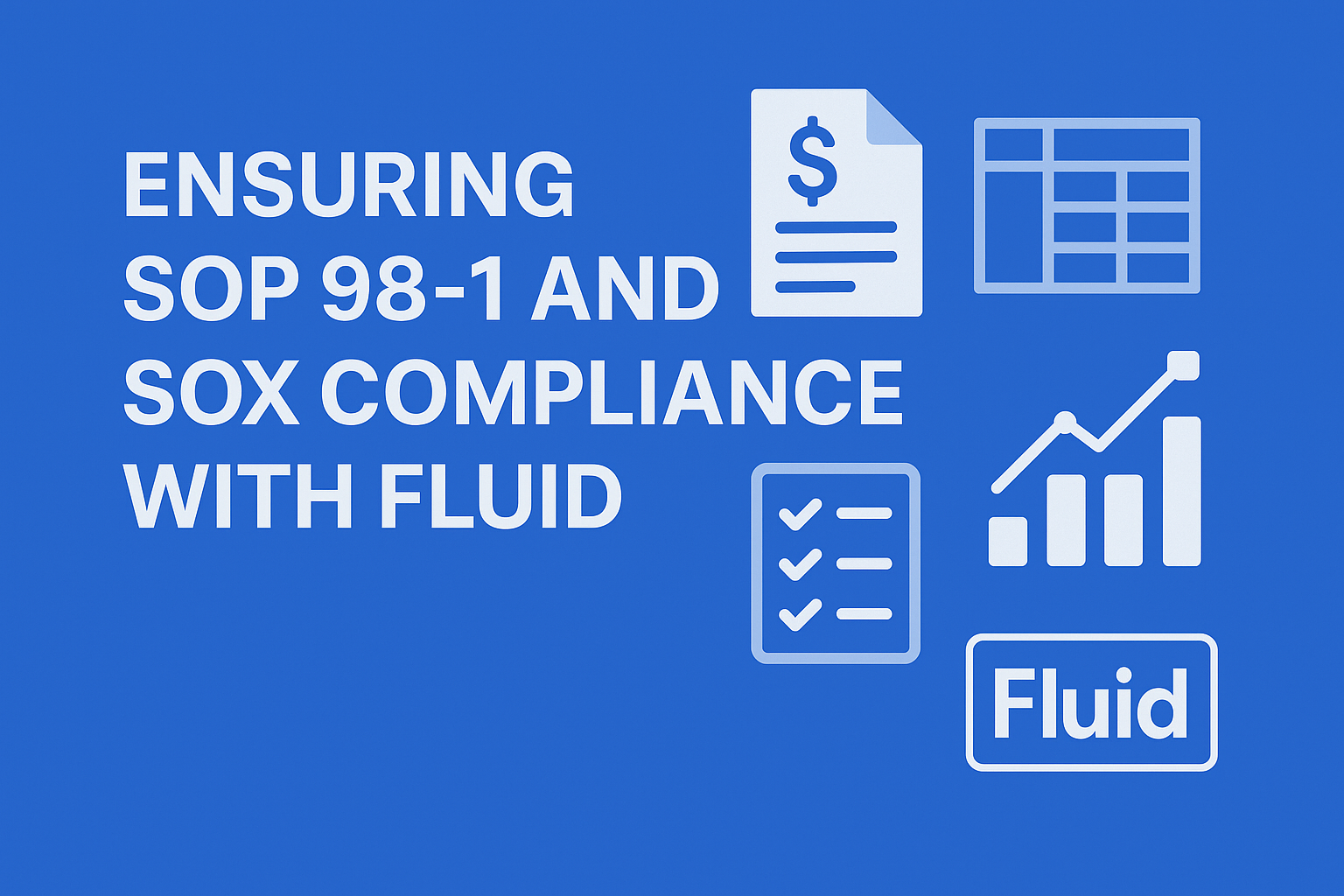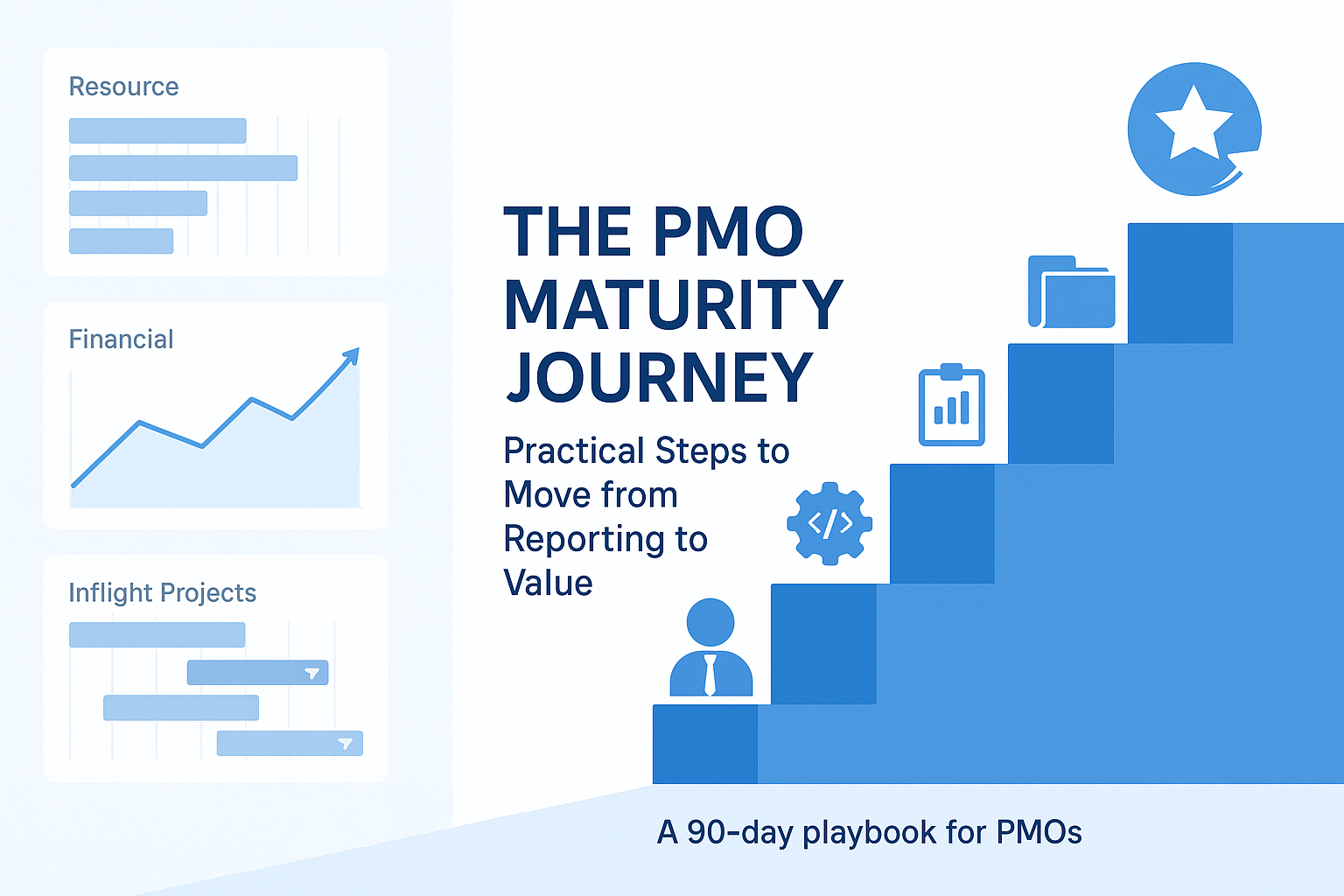What is a Project Management Office (PMO)?

What is a Project Management Office?
A Project Management Office (PMO) is a centralised unit within an organisation that oversees project management practices and standards. It serves as a hub for project-related information, resources, and best practices. The PMO is responsible for ensuring that project management processes are consistent and aligned with the organisation's strategic goals and objectives. Our CEO, Jared Whitaker spent a lot of his career in a PMO and knows all about setting up PMOs, and exactly what a great PPM tool can do to help project managers.
What does a Project Management Office (PMO) do?
The primary role of a Project Management Office is to facilitate the successful completion of projects within an organisation. A Project Management Office covers three key areas:
- Standardisation and Governance
- Metrics and Reporting
- Guidance and Support
What roles are in a Project Management Office (PMO)?
PMOs are essential for the project management success, after all, PMOs are involved with anything and everything to do with project management! PMO roles vary depending on the size an organisation, stakeholder needs, and business environment but the three key PMO roles include:
PMO Head
The PMO Head is responsible for managing the Office, and this role requires strong leadership, management skills, and expertise in portfolio, program, and project management. The main responsibilities of a PMO head are:
- Manage the PMO team and take lead in the continuous improvement of the PMO
- Report progress to the project manager and other stakeholders through management boards
- Work closely with stakeholders to establish and apply a project governance framework
- Communicate changes in a project's strategic goal to all parties involved
Project Specialist
A Project Specialist offers support to project managers and key stakeholders, putting forward advice and guidance. The typical responsibilities of a Project Specialist include:
- Collaborate with the project manager at the start of a project to outline the project governance
- Develop standards and templates
- Create and maintain a repository of proper project documentation
- Personalise guidance to each project's unique needs
Project Officer
The role of a Project Officer is to enhance the project planning and delivery process by collecting and maintaining data. The key responsibilities of a Project Officer are to:
- Coordinate the running of projects
- Manage the review process
- Support the creation and maintenance of project plans from the ideation phase, to closure
- Consistently applying templates and guidelines to collect and maintain data
Understanding these key roles and responsibilities can make such a difference to successful project management. So, be sure to keep them in mind and apply them accordingly!
How does a Project Management Office use Project Portfolio Management (PPM) Software?
The primary role of a PMO is to facilitate the successful completion of projects. By establishing project management standards, providing support and guidance, managing resources, monitoring and controlling projects, and fostering collaboration, the PMO can ensure that projects are aligned with the organisation's strategic goals and objectives.
Having a centralised PPM software solution to run your PMO and projects through greatly increases the efficiency and output of your PMO, making it critical for any PMO! Fluid is an all-in-one PPM solution, negating the need for other costly and single-use software, Fluid allows project managers to manage resource allocation, track projects, standardise reporting and oversee financials for multiple projects, from a single dashboard.
The manual requirements of a standardisation can be significantly eased for PMO staff and project resources with the help of PPM software. Fluid provides a base for project management processes and methodologies to be run with consistency across projects. Reporting methods are also simplified and standardised across the organisation with the use of reporting templates and dashboards, this helps the PMO with standardisation, metrics and reporting.
Aside from reporting being standardised through templates etc., it’s important to understand exactly what metrics you should be tracking in the first place. Fluid has an advanced set of reporting features that enable PMOs to ensure the project managers make fact-based decisions, with real-time data. Fluid also promotes collaboration among project teams and stakeholders by providing a platform for sharing information and best practices, making it ideal for PMOs to offer guidance and support to their teams.
Talk to us to find out how we can help you manage your projects effectively.
See how Fluid enables your business to deliver the right strategic change













